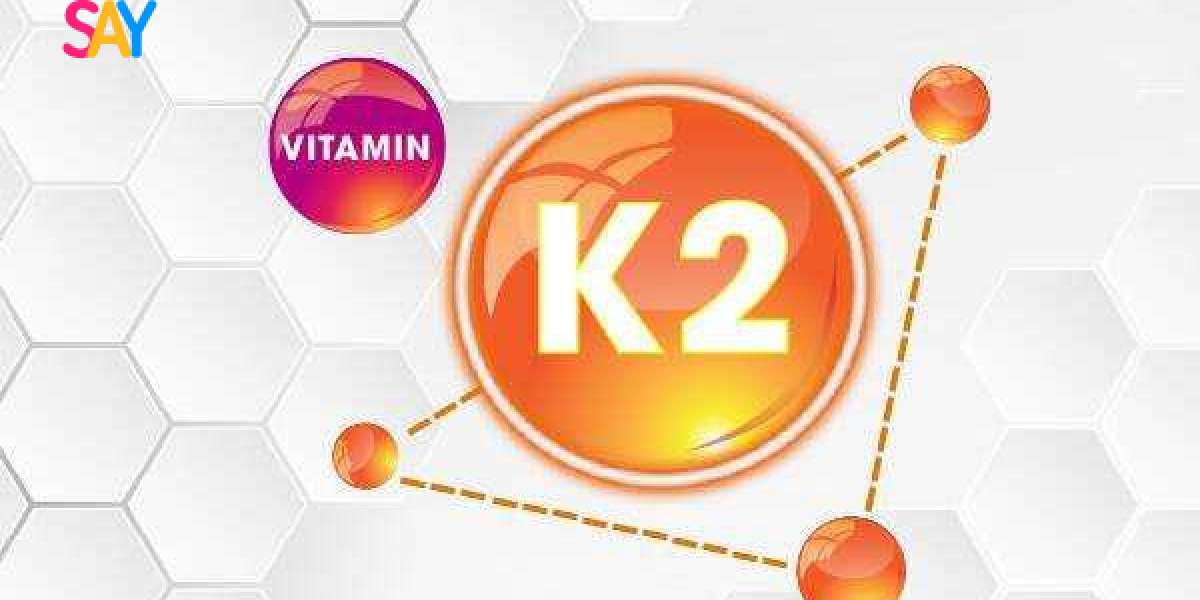Vitamin K2 is a lesser-known but essential nutrient that plays a vital role in bone health. Unlike its counterpart, vitamin K1, which is primarily involved in blood clotting, vitamin K2 focuses on activating proteins responsible for directing calcium to the bones and teeth. This process ensures proper bone mineralization, reducing the risk of osteoporosis and fractures. Vitamin K2 also exhibits potential cardiovascular benefits by preventing calcium buildup in arterial walls. Understanding the significance of vitamin K2 and incorporating it into your diet can help safeguard your bones as you age.
Role of Vitamin K2 in Bone Health
Vitamin K2 plays a crucial role in promoting and maintaining optimal bone health. It activates specific proteins in the body that help regulate calcium metabolism, ensuring that calcium is properly utilized in the bones. By directing calcium to the skeletal system, vitamin K2 enhances bone mineralization, density, and strength, thereby reducing the risk of osteoporosis and fractures. Additionally, vitamin K2 aids in preventing calcium from accumulating in the arteries, which can contribute to arterial calcification. By supporting bone health, vitamin K2 plays a vital role in maintaining overall skeletal integrity and reducing age-related bone disorders.
Vitamin K1 vs. Vitamin K2
Vitamin K1 and vitamin K2 are two distinct forms of vitamin K, each with its unique roles in the body. Vitamin K1, also known as phylloquinone, is primarily involved in blood clotting and is commonly found in leafy green vegetables. On the other hand, vitamin K2, also known as menaquinone, focuses on activating proteins that regulate calcium metabolism, particularly in bone health. While both forms are important, vitamin K2 has been found to have a more significant impact on bone health and cardiovascular health by directing calcium to the bones and preventing arterial calcification, respectively.
Dietary Sources of Vitamin K2
Vitamin K2 is found in a variety of dietary sources, although it is less abundant compared to vitamin K1. The richest natural source of vitamin K2 is fermented foods, such as natto, a traditional Japanese dish made from fermented soybeans. Other sources include certain types of cheese, such as Gouda and Edam, as well as fermented vegetables like sauerkraut. Animal-based foods like egg yolks, liver, and certain types of meat, such as beef and chicken, also contain small amounts of vitamin K2. Incorporating these foods into your diet can help ensure an adequate intake of vitamin K2 for bone health.
Vitamin K2 and Calcium Utilization
Vitamin K2 plays a critical role in the utilization of calcium in the body. It activates proteins called matrix Gla proteins (MGP) that are responsible for inhibiting calcium deposition in soft tissues, such as arteries, and promoting its deposition in bones and teeth. By activating MGP, vitamin K2 ensures that calcium is properly utilized in the skeletal system, contributing to optimal bone mineralization and strength. This process helps prevent calcium from accumulating in arterial walls, reducing the risk of arterial calcification and promoting cardiovascular health. Vitamin K2's role in calcium utilization underscores its importance in maintaining both bone and cardiovascular health.
Vitamin K2 and Osteoporosis Prevention
Vitamin K2 plays a significant role in the prevention of osteoporosis, a condition characterized by weakened bones and increased fracture risk. By activating proteins involved in bone metabolism, such as osteocalcin, vitamin K2 helps ensure proper calcium utilization and bone mineralization. Studies have shown that higher dietary intake of vitamin K2 is associated with improved bone density and reduced risk of osteoporotic fractures. Furthermore, vitamin K2 works synergistically with other bone-supporting nutrients like calcium and vitamin D. Including vitamin K2-rich foods in your diet or considering supplementation can contribute to the prevention of osteoporosis and the maintenance of strong, healthy bones.
Vitamin K2 and Fracture Risk
Vitamin K2 has been shown to have a positive impact on reducing fracture risk, particularly in individuals with osteoporosis or decreased bone density. By promoting proper calcium utilization and improving bone mineralization, vitamin K2 helps enhance bone strength and resilience. Studies have indicated that a higher intake of vitamin K2 is associated with a lower risk of fractures, including hip fractures, which are common and debilitating in older adults. Incorporating vitamin K2 into the diet or considering supplementation may be beneficial in reducing fracture risk and improving overall bone health, especially in individuals at higher risk of fractures.
Vitamin K2 and Heart Health
Vitamin K2 has emerged as a potential player in promoting heart health. One of its key functions is to prevent the calcification of arteries, which can contribute to cardiovascular diseases like atherosclerosis. By activating matrix Gla proteins (MGP), vitamin K2 helps inhibit the accumulation of calcium in arterial walls, preserving their elasticity and reducing the risk of plaque formation. Studies have suggested that higher vitamin K2 intake is associated with a decreased risk of cardiovascular events. While more research is needed, incorporating vitamin K2-rich foods or considering supplementation may support heart health and reduce cardiovascular risks.
Ephuroalabs Vitamin K2 Supplement
The Ephuroalabs Vitamin K2 supplement is a dietary product specifically formulated to provide a concentrated dose of vitamin K2. Designed to support bone health and cardiovascular wellness, this supplement aims to deliver the benefits associated with vitamin K2 in a convenient and easily absorbable form. With its high-quality ingredients and adherence to strict quality standards, Ephuroalabs aims to provide a reliable and effective vitamin K2 supplement. Regular intake of this supplement, in combination with a balanced diet and a healthy lifestyle, may help individuals meet their vitamin K2 needs and support optimal bone density and cardiovascular function.
https://ephuroalabs.com/product/ephuroalabs-vitamin-k2/








